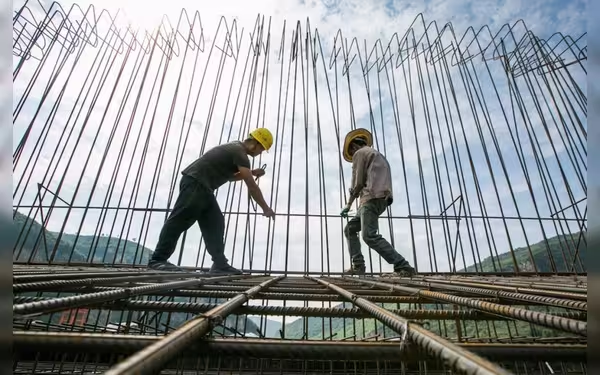Thursday, July 4, 2024 06:33 PM
China's Government Announces Plan to Address Property Crisis
- China invests 300 billion yuan to assist state-owned companies in purchasing unsold housing units
- Property market stabilization efforts due to decline in property sales and prices
- Experts suggest more aggressive measures needed to combat oversupply and defaults
 Image Credits: asiatimes
Image Credits: asiatimesChina's government announces a 300 billion yuan plan to stabilize the property market facing challenges. Experts suggest more aggressive measures may be needed to combat oversupply and defaults.
China's government has recently announced a significant plan to address the country's property crisis. The initiative involves a substantial investment of 300 billion yuan from the People's Bank of China to assist state-owned companies in purchasing unsold housing units. This move aims to stabilize the property market, which has been facing challenges due to a decline in property sales and prices.
The property sector in China plays a crucial role in the country's economy, contributing significantly to the GDP. However, recent data shows a continuous drop in new home prices for the 10th consecutive month, raising concerns about the overall economic impact. To combat the oversupply of housing units and the rising risks of defaults among developers, experts suggest that more aggressive measures may be necessary.
While the government's initiative is a step in the right direction, some analysts believe that a more substantial financial commitment, possibly around $1 trillion, could be required to effectively address the housing inventory backlog. There is a sense of urgency to resolve the property crisis, but uncertainties remain regarding the effectiveness of the current initiatives and their impact on property sales and prices.
China's efforts to tackle the property crisis are commendable, but the road ahead may require more extensive measures to achieve long-term stability in the real estate market. As the situation evolves, it will be crucial for policymakers to carefully monitor the outcomes of the current initiatives and be prepared to adapt strategies to address any unforeseen challenges.













